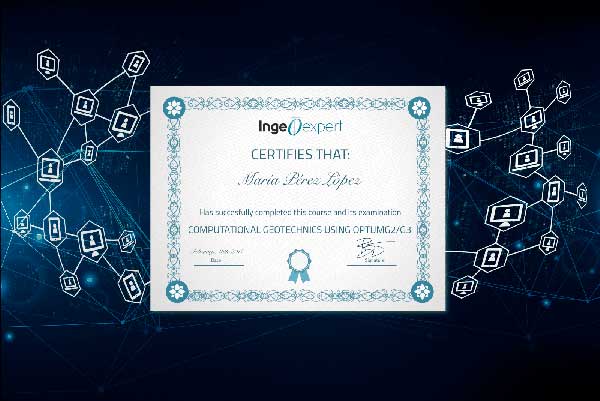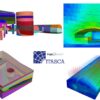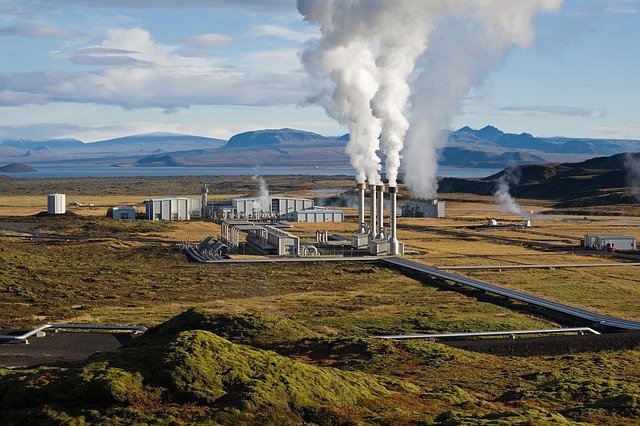Geothermal Energy and Ground Source Heat course
Online course |
|
50 hours / 6 weeks |
|
To be determined |
Introduction
This course covers the concept of thermogeology and the ground source heat. The framework of this course also includes understanding of types of geothermal systems, the sustainability of geothermal energy systems and their environmental impacts. The course also addresses the application and options of ground source heat such as heat pumps, as well as the subsurface heat extraction from deep aquifer stratum. The parameters affecting the design of geothermal heat source will be also covered in this course package.
Objectives
- Understanding the difference between geothermal energy and ground source heat
- Geothermal gradient and types of geothermal systems
- Sustainability of geothermal energy
- Heat Pump and its application
- The parameters affecting the design of groundwater heat systems
- Environmental impact and regulations related to the geothermal energy resources
Week 1 : Introduction to geothermal energy and ground source heat
Geothermal gradient
Types of geothermal systems
Use of geothermal systems
Week 2: Heat Storage
Earth heat capacity
Geochemistry vs Geothermal
Week 3: Heat Pump and Its application
Ground source heat pump (GSHP)
The efficiency of GSHP
Sizing of GSHP
Practical consideration of using GSHP
Week 4: Types of GSHP
Open-loop vs Closed loop systems
Heating and Cooling Delivery
Heat calculation for building
Week 5: Groundwater Based heating systems
Aquifer water
Well design for Ground-water heat system
Heat migration in the groundwater
Groundwater modelling
Week 6: Case Studies and Review
Dr Gomari
Dr Gomari completed his MSc in Petroleum Engineering in 2003 from NTNU, Norway followed by his PhD at the University of Stavanger in 2006. He has gained 12 years of industrial experiences with the National Iranian Oil Company, and Statoil ASA ( Equinor ) before joining Teesside University as Senior Lecturer.
- – From the time he has joined academia, he established his core analysis lab where it has been used by several PhD, and MSc students to complete their research on advanced oil recovery and porous media subjects.
- – He has been as director of study for several PhD students, published several high impact factor journal papers, and has acted as assessor for several PhD and MSc thesis.
- – He has awarded a fund from Royal Academy of Engineering (RAE) in 2016 to collaborate with Brazilian institutes on the subject of novel techniques on wettability quantification of challenging oil and gas reservoirs.
- – His concern about environmental protection in oil and gas industry led him to propose several projects on wastewater treatments and management, CO2 capture and reuse as well as application of biomaterials. Currently he is chartered engineer of Energy Institute, Editor in Chief for Oil, Gas and Petrochemical Science, member of SPE and EAGE associations, and course leader for MSc Petroleum Engineering at Teesside University.
The course is delivered online through our easy-to-use Virtual Campus platform. For this course, a variety of content is provided including:
– eLearning materials
– Videos
– Interactive multimedia content
– Live webinar classes
– Texts and technical articles
– Case studies
– Assignments and evaluation exercises
Students can download the materials and work through the course at their own pace. We regularly update this course to ensure the latest news and state-of-the-art developments are covered, and your knowledge of the subject is current.
Live webinars form part of our course delivery. These allow students and tutors to go through the course materials, exchange ideas and knowledge, and solve problems together in a virtual classroom setting. Students can also make use of the platform’s forum, a meeting point to interact with tutors and other students.
The tutoring system is managed by email. Students can email the tutor with any questions about the course and the tutor will be happy to help.
Geo-energy professionals
Geoscience
Energy provider
Environmental Engineering
Once a student finishes the course and successfully completes the assignments and evaluation tests, they are sent an accreditation certificate. The certificate is issued by Ingeoexpert to verify that the student has passed the course. It is a digital certificate that is unique and tamper-proof – it is protected by Blockchain technology. This means it is possible for anyone to check that it is an authentic, original document.
You will be able to download the certificate in an electronic format from the Virtual Campus platform. The certificate can be forwarded by email, shared on social networks, and embedded on websites. To see an example, click here.
This course designed to help participants to join the fast-growing renewable energy job markets especially in the EU region. After completing this course, the trainees are able to discuss and outlie the principles of geothermal energies and their capabilities to deliver clean energy to the consumers. As this course provides details about heat pump and source heat ground ( shallow resources), deep geothermal wells and their design, it creates the opportunity for trainees to choose different discipline such as geothermal electricity production, geothermal direct-use applications, and geothermal for heating and cooling buildings with heat pumps for their future career.
Introduction
This course covers the concept of thermogeology and the ground source heat. The framework of this course also includes understanding of types of geothermal systems, the sustainability of geothermal energy systems and their environmental impacts. The course also addresses the application and options of ground source heat such as heat pumps, as well as the subsurface heat extraction from deep aquifer stratum. The parameters affecting the design of geothermal heat source will be also covered in this course package.
Objectives
- Understanding the difference between geothermal energy and ground source heat
- Geothermal gradient and types of geothermal systems
- Sustainability of geothermal energy
- Heat Pump and its application
- The parameters affecting the design of groundwater heat systems
- Environmental impact and regulations related to the geothermal energy resources
Week 1 : Introduction to geothermal energy and ground source heat
Geothermal gradient
Types of geothermal systems
Use of geothermal systems
Week 2: Heat Storage
Earth heat capacity
Geochemistry vs Geothermal
Week 3: Heat Pump and Its application
Ground source heat pump (GSHP)
The efficiency of GSHP
Sizing of GSHP
Practical consideration of using GSHP
Week 4: Types of GSHP
Open-loop vs Closed loop systems
Heating and Cooling Delivery
Heat calculation for building
Week 5: Groundwater Based heating systems
Aquifer water
Well design for Ground-water heat system
Heat migration in the groundwater
Groundwater modelling
Week 6: Case Studies and Review
Dr Gomari
Dr Gomari completed his MSc in Petroleum Engineering in 2003 from NTNU, Norway followed by his PhD at the University of Stavanger in 2006. He has gained 12 years of industrial experiences with the National Iranian Oil Company, and Statoil ASA ( Equinor ) before joining Teesside University as Senior Lecturer.
- – From the time he has joined academia, he established his core analysis lab where it has been used by several PhD, and MSc students to complete their research on advanced oil recovery and porous media subjects.
- – He has been as director of study for several PhD students, published several high impact factor journal papers, and has acted as assessor for several PhD and MSc thesis.
- – He has awarded a fund from Royal Academy of Engineering (RAE) in 2016 to collaborate with Brazilian institutes on the subject of novel techniques on wettability quantification of challenging oil and gas reservoirs.
- – His concern about environmental protection in oil and gas industry led him to propose several projects on wastewater treatments and management, CO2 capture and reuse as well as application of biomaterials. Currently he is chartered engineer of Energy Institute, Editor in Chief for Oil, Gas and Petrochemical Science, member of SPE and EAGE associations, and course leader for MSc Petroleum Engineering at Teesside University.
The course is delivered online through our easy-to-use Virtual Campus platform. For this course, a variety of content is provided including:
– eLearning materials
– Videos
– Interactive multimedia content
– Live webinar classes
– Texts and technical articles
– Case studies
– Assignments and evaluation exercises
Students can download the materials and work through the course at their own pace. We regularly update this course to ensure the latest news and state-of-the-art developments are covered, and your knowledge of the subject is current.
Live webinars form part of our course delivery. These allow students and tutors to go through the course materials, exchange ideas and knowledge, and solve problems together in a virtual classroom setting. Students can also make use of the platform’s forum, a meeting point to interact with tutors and other students.
The tutoring system is managed by email. Students can email the tutor with any questions about the course and the tutor will be happy to help.
Geo-energy professionals
Geoscience
Energy provider
Environmental Engineering
Once a student finishes the course and successfully completes the assignments and evaluation tests, they are sent an accreditation certificate. The certificate is issued by Ingeoexpert to verify that the student has passed the course. It is a digital certificate that is unique and tamper-proof – it is protected by Blockchain technology. This means it is possible for anyone to check that it is an authentic, original document.
You will be able to download the certificate in an electronic format from the Virtual Campus platform. The certificate can be forwarded by email, shared on social networks, and embedded on websites. To see an example, click here.
This course designed to help participants to join the fast-growing renewable energy job markets especially in the EU region. After completing this course, the trainees are able to discuss and outlie the principles of geothermal energies and their capabilities to deliver clean energy to the consumers. As this course provides details about heat pump and source heat ground ( shallow resources), deep geothermal wells and their design, it creates the opportunity for trainees to choose different discipline such as geothermal electricity production, geothermal direct-use applications, and geothermal for heating and cooling buildings with heat pumps for their future career.
More info
Finish this course and get a certificate based on Blockchain
Geothermal Energy and Ground Source Heat course

Blockchain technology makes the certificate incorruptible, enabling companies to verifiy its autenticity.





Reviews
There are no reviews yet.